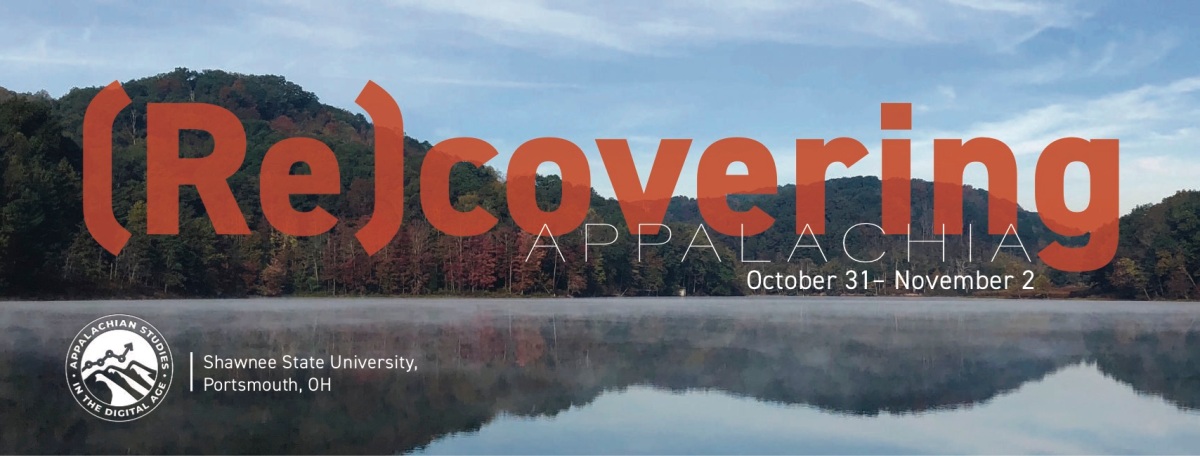The symposium program committee welcomes proposals for paper sessions, panel discussions, performances, film screenings, sound design presentations, and showcase workshops, all centered on the theme of (Re)covering Appalachia. “Recovery” here is being used in the dual sense of returning to a state of health and regaining something of value.
Many communities in the Appalachian region are in a phase of recovery; with the decline of coal production and the ongoing opioid addiction crisis, with the political fallout from the 2016 election and the continued proliferation of flawed, negative media images, we are attempting to reposition ourselves for positive adaptation and renewal. How do we recover from the shock of economic dislocation, environmental damage, families and communities challenged by substance abuse and inadequate health care, as well as journalistic narratives that reductively characterize our communities as “devastated” and “hopeless”?
What sorts of data, voices, technologies, media platforms, software applications, preservation projects, public health initiatives, and creative works can help us recover the discarded, overlooked, and unappreciated stories of struggle and triumph in our region? How do we recover what has been ignored by others but never really lost? In this digital age, how do we recover and reclaim the music and art and revisit the photographs and narratives of Appalachia?
How do we practice recovery in our families, schools, universities, sports, businesses, religious and civic organizations? What does recovery look like?
By taking digital methods in the arts and humanities as our focus and (Re)covering Appalachia as our theme, the program committee wishes to hear from scholars, educators, activists, journalists, visual artists, librarians, musicians, documentarians, public health professionals, economic development specialists, and students, all of whom are welcome to participate in the proceedings. We are committed to creating sessions that include local artists and other professionals, people of color, female, queer, and independent scholars, junior scholars, and graduate students. Both panel proposals and individual papers or presentations are welcomed.
Our keynote speaker for the symposium will be Elizabeth Catte. Based in the Shenandoah Valley of Virginia, Catte is originally from eastern Tennessee. She holds a Ph.D. in public history from Middle Tennessee State University and is the co-owner of Passel, a historical consulting and development firm. She is the author of What You Are Getting Wrong about Appalachia and a co-editor of the recent collection 55 Strong: Inside the West Virginia Teachers’ Strike. Her essays and interviews have appeared in outlets as varied as The Guardian, Cincinnati Magazine, In These Times, The Nation, NPR’s All Things Considered, WYNC’s On the Media, The Boston Review, and 100 Days in Appalachia.
Paper presenters should provide a 250-word abstract as part of their proposal. Performers and artists should provide a summary description of the same length.
To submit your proposal please follow this link to our online form.
The final deadline for proposals will be August 5th, 2019.
Online Registration will open once the program is finalized in mid-August. A Registration Fee of $30 is required. Students can attend for free with ID. Plenary sessions and some workshops will be open, free to the public.
For further information, please contact:
Janet Feight, Ph.D., Associate Professor of English, Symposium Program Coordinator.
Email: jfeight@shawnee.edu
Ph.: 740.351.3007
The symposium is sponsored, in part, by the Digital Appalachian Studies Program at Shawnee State University, the Shawnee Digital History Lab at Clark Memorial Library, the Community Action Organization of Scioto County, the Shawnee State University Development Foundation, the Scioto Foundation, the Portsmouth City Health Department, and the Friends of Portsmouth.
